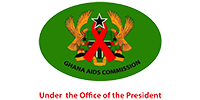The fi ght against HIV and AIDS in Ghana like other countries in the sub-region has been pursued through interventions to stop the spread of the virus and prolong the lives of those infected mainly using antiretroviral therapy (ART) and a combination of prevention measures. Signifi cant successes have been made in this regard and the Ghana HIV numbers suggest a down-trending of its prevalence. Despite the successes pertaining to access to treatment commodities which have also been shown to lead to a reduction in the number of AIDS-related deaths, a major challenge many HIV-affected individuals and households in sub[1]Saharan Africa grapple with is food insecurity. The impact of the HIV epidemic on household vulnerability is extensively documented with communities and households already living on the edge, being made more vulnerable by the complex consequences of HIV and AIDS.
Inclusive social protection systems contribute to holistic responses to the needs of benefi ciaries and enable countries to better address the different dimensions of poverty and vulnerability across the life cycle, as well as offer benefi ciaries a broad range of coordinated multi-sectoral interventions that aim at ultimately bringing greater wellbeing for individuals, their families and communities. Social protection contributes to advancing the AIDS response by contributing to the prevention of new HIV infections and reducing AIDS-related deaths and stigma and discrimination. Social protection can also help address the multiple social determinants of the epidemic – income inequalities, gender inequalities, social exclusion – and thus contribute to a reduction in new HIV infections.
Though investments in social protection have shown to have sustainable impacts on poverty reduction, as poor and vulnerable people become productive contributions to the development of society, many barriers exist that prevent people living with, at risk of or affected by HIV from accessing HIV-sensitive social protection services. This assessment which is the fi rst-ever in the country was therefore carried out by the Ghana AIDS Commission (GAC), with funding from the World Food Programmes and in collaboration with stakeholders and partners in the AIDS response, to assess how the social protection schemes and health services in Ghana address the unique vulnerabilities and needs of households of persons living with, at risk of and affected by HIV. Thus by assessing the HIV sensitivity of these services the study also looked at the barriers that prevent the vulnerable groups from accessing these services and how the barriers can be mitigated.
HIV AND SOCIAL PROTECTION(1)